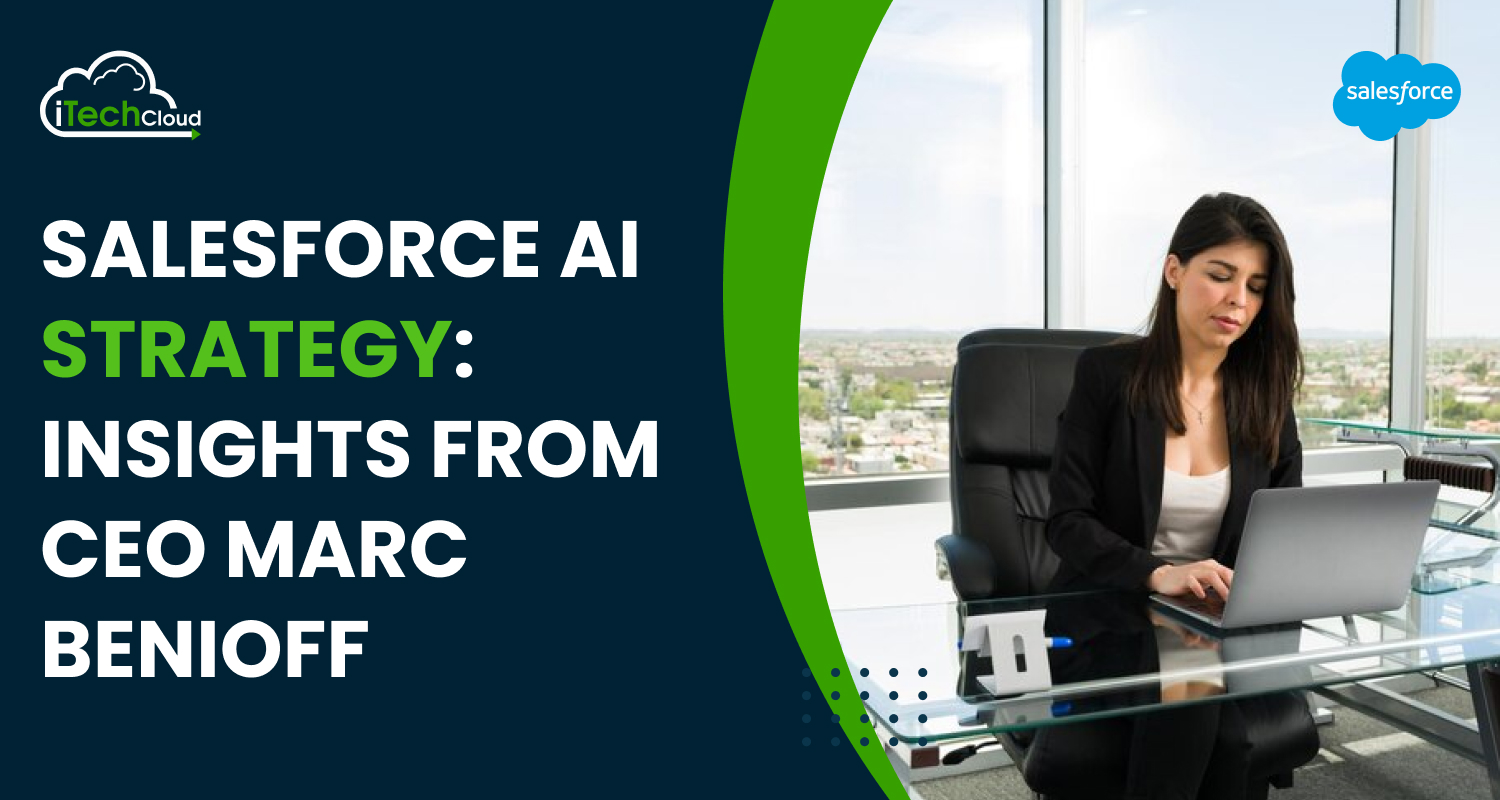Salesforce, under CEO Marc Benioff’s leadership, has been actively integrating artificial intelligence (AI) into its ecosystem to revolutionize customer relationship management (CRM) and enhance business operations. The company’s AI strategy is centered around automation, data-driven decision-making, and improving customer experiences.
The Beginning of Salesforce’s AI Journey
Salesforce’s AI initiatives began with the launch of Salesforce Einstein in 2016. This was a major milestone in embedding AI capabilities into the Salesforce platform. Einstein was designed to help businesses analyze data, predict outcomes, and automate routine tasks. It provided insights that improved sales forecasting, customer service responses, and marketing strategies.
The introduction of Einstein showcased Salesforce’s long-term vision for AI, demonstrating its commitment to making AI an integral part of enterprise software. Over the years, the company has continued expanding its AI capabilities, focusing on automation, machine learning, and generative AI to provide businesses with more powerful tools.
Agentforce: The Next Step in AI Evolution
A major breakthrough in Salesforce AI strategy came in 2024 with the launch of Agentforce, an AI-powered platform designed to help businesses create and deploy AI-driven autonomous agents. These digital agents can perform various business tasks, including customer service, sales automation, and workflow optimization.
Benioff has positioned Agentforce as a fundamental shift in Salesforce’s AI direction. Unlike traditional AI applications that assist human employees, Agentforce introduces digital labor that can work alongside or even replace certain human roles. The platform aims to increase efficiency, reduce costs, and improve customer interactions.
With Agentforce, Salesforce is not just adding AI to existing tools—it is creating an entirely new way for businesses to operate. AI-driven agents can handle routine and complex processes, allowing human employees to focus on strategic and creative tasks.
Strategic Investments and Expansion
Salesforce has made significant investments to expand its AI capabilities globally. One of its most notable moves was a $500 million investment in AI-related projects, including the development of AI infrastructure, new data centers, and partnerships with leading technology firms.
To strengthen its presence in emerging markets, Salesforce has also focused on language localization, enabling AI models to support multiple languages, including Arabic. This expansion strategy aligns with Salesforce’s vision of making AI accessible to businesses worldwide, helping them leverage AI for growth and digital transformation.
The company has also partnered with major consulting firms and cloud service providers to accelerate AI adoption. By collaborating with industry leaders, Salesforce ensures that its AI-driven solutions are seamlessly integrated into enterprise workflows.
AI and Workforce Transformation
Benioff has been vocal about the impact of AI on the workforce. He acknowledges that AI-driven automation will lead to shifts in job roles, requiring businesses to rethink their workforce strategies.
AI agents will take over many routine and repetitive tasks, which could lead to job displacement in certain sectors. However, Benioff also emphasizes that AI will create new opportunities, allowing employees to focus on higher-value work that requires creativity, critical thinking, and human interaction.
To address workforce transformation, Salesforce is investing in training programs to upskill employees. The company has pledged to train thousands of professionals in AI-related skills, helping them adapt to the evolving job market.
Challenges and Criticism
Despite its advancements, Salesforce faces challenges in maintaining its competitive edge in the AI landscape. Some industry experts question whether Salesforce can keep up with rapid AI developments and compete with tech giants like Microsoft and Google, which are also heavily investing in AI.
Another concern is the ethical implications of AI-driven automation. As AI agents become more advanced, businesses must navigate issues related to job displacement, data privacy, and decision-making transparency. Salesforce has committed to addressing these challenges by implementing responsible AI policies and ensuring that its AI solutions are used ethically.
Financial Performance and Market Reception
Salesforce’s AI initiatives have had a positive impact on its financial performance. Following the launch of Agentforce, Salesforce’s stock saw an increase, reflecting investor confidence in the company’s AI strategy.
Although AI adoption is still in its early stages, businesses are showing strong interest in Salesforce’s AI-powered solutions. Companies across various industries are exploring how AI can enhance customer engagement, streamline operations, and drive business growth.
The Future of AI at Salesforce
Looking ahead, Benioff envisions AI becoming an even more integral part of business operations. He believes that AI-driven agents will work alongside human employees, creating a hybrid workforce that combines the efficiency of AI with human creativity and decision-making.
Salesforce plans to continue investing in AI research and development, focusing on areas such as natural language processing, predictive analytics, and automation. The company’s goal is to ensure that businesses can leverage AI to improve productivity, enhance customer experiences, and drive innovation.
Conclusion
Marc Benioff’s AI strategy for Salesforce represents a bold vision for the future of enterprise software. By integrating AI across its platform, launching AI-driven tools like Agentforce, and investing in global expansion, Salesforce is positioning itself as a leader in AI-powered business solutions.
While challenges remain, Salesforce’s commitment to innovation, workforce transformation, and responsible AI development ensures that it will continue shaping the future of AI in business. As AI technology evolves, Salesforce’s AI strategy will play a critical role in defining how businesses harness AI to drive success.


